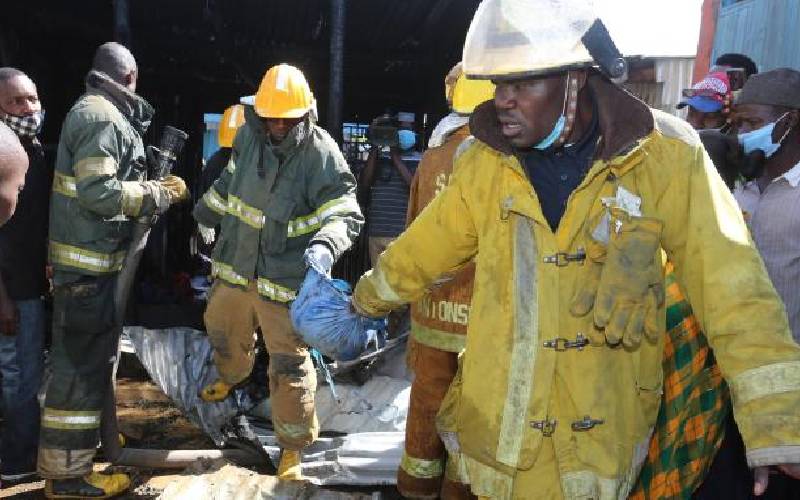×
The Standard e-Paper
Fearless, Trusted News

Fire Brigade personnel carry the remains of an infant who was burnt beyond recognition after their house caught fire.[Peter Ochieng,Standard]
When a woman experiences neonatal death, the presumption at the workplace is that she should go for compassionate or a sick leave. This leave period is inadequate because there are physical, emotional and psychological trauma attached to these experiences. Most women suffer from depression, anxiety and distress that can continue long after the pregnancy has ended.